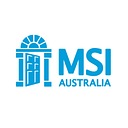Speech by Jamal Hakim | The Road to Abortion Equity
The Federal Senate has established an Inquiry into universal access to reproductive healthcare. The Inquiry was called because the government has acknowledged we have a crisis of sexual and reproductive health access.
On Wednesday 9 November 2022, we hosted an online forum to explore what the inquiry terms mean, how it applies in practice and provided a submission template which you can download here to assist people in writing their own.
Jamal Hakim gave the following speech “The Senate Inquiry and rallying evidence based submissions within the health sector” at our webinar, which you can watch here.
I acknowledge that I’m joining from Wurundjeri Country. Sovereignty has not been ceded. My respect to Elders past and present. I acknowledge the Aboriginal and Torres Strait Islander people joining us today.
In Australia, colonial violence resulted in thousands of years of sexual and reproductive health and healing knowledge to be overlooked and prohibited. To ensure cultural safety, we must build a future where we enable self-determination for all, to make decisions over our own sexual and reproductive lives.
We’ve called this webinar in an attempt to bring people together. Our health system needs to evolve, and every one of us here has a role in that evolution.
For the first time in history, Australia has committed to universal access to abortion with bipartisan support.
There is a goal to implement by this 2030, which is only 7.5 years away.
It is widely acknowledged that sexual and reproductive health inequity, particularly in regional and remote areas, is at crisis point.
This inquiry gives us the opportunity to shift from talking about barriers, to proposing solutions.
During the senate inquiry process we expect to see thousands of anti-choice submissions, with a wide range of public discourse during hearings that uses language that patronises, belittles and judges people for making a very personal choice.
We have to combat this sentiment, come together and speak with a shared voice.
We need one clear message, which is universal access to sexual and reproductive healthcare.
Every single person in Australia should be able get to a service that they want and need, when it comes to abortion and contraception, whereever they may be, from Hobart to Broome, from Albany to the Torres Strait.
The Government needs to fund the gap in abortion and contraception services, to remove the out of pocket costs.
Universal access to contraception and abortion is preventative health.
It has significant mental, physical and cultural health benefits.
It supports people to plan their lives and creates the space a family needs to avoid risk of poverty.
It has huge impacts on gender equity and workforce participation, improves overall economic output and strengthens the economy.
As we go through the current economic climate, pressure is mounting.
The increase in cost of living, work pressures, and trauma related to the Covid19 pandemic will be felt for decades to come.
Having universal contraception and abortion access enables reproductive autonomy.
It reduces one area of burden for individuals and families to plan their future.
At MSI Australia we have almost 300 staff and 100 doctors who are providers of quality and safe abortion and contraceptive care, many of whom will be listening to this webinar or the recording.
I encourage all of you to make individual submissions alongside organisational submissions.
If you’re on boards and committees, or part of communities of practice, you can also support them to make joint submissions.
This inquiry must be a showcase of evidence based conversation.
Join us in this public call for universal access to reproductive health.
Jamal Hakim joined MSI Australia in 2013 and led operational aspects of the organisation as Chief Financial Officer and then Chief Operating Officer before being appointed as Managing Director in 2019.
Having worked in complex environments throughout his career, Jamal aims to balance culture, commercial sustainability and mission. He currently holds several board appointments, including MS Health and Democracy in Colour.
In 2020, Jamal was elected as a Councillor for the City of Melbourne. Jamal is the delegated authority from the MSI Reproductive Choices board in Australia and is responsible for leading the organisation locally, ensuring we deliver on our mission and vision in Australia.
